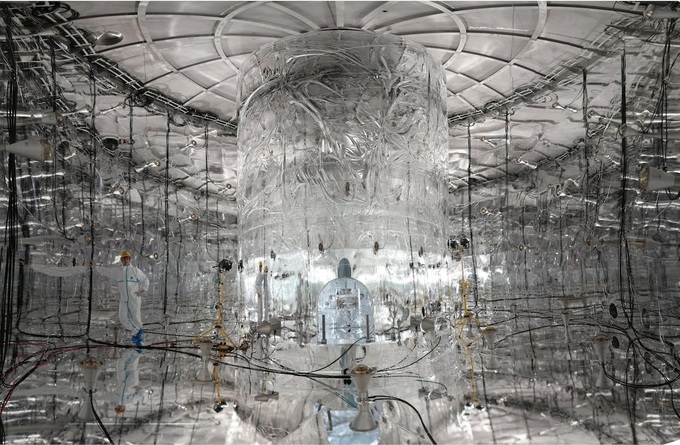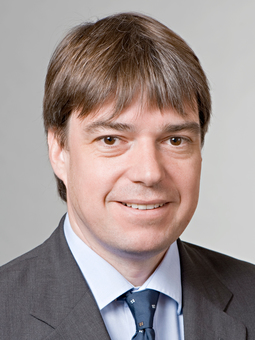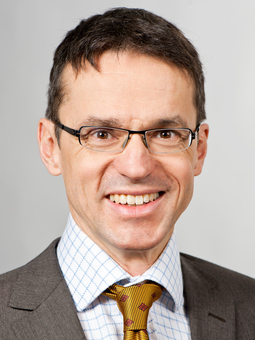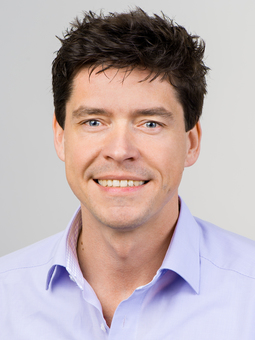EU-Förderung für wegweisende Projekte
ERC Advanced Grants: wieder 3 Projekte aus der TUM-Physik erfolgreich
2018-04-19 – Nachrichten aus dem Physik-Department

Jedes Jahr vergibt der Forschungsrat Grants in verschiedenen Kategorien. Die Advanced Grants sind exzellenten etablierten Wissenschaftlerinnen und Wissenschaftlern vorbehalten, die in den letzten zehn Jahren Spitzenleistungen vorzuweisen haben. Sie sind mit bis zu 2,5 Millionen Euro dotiert.
Zusätzlich zu den zwei Advanced Grants wird ein Projekt aus dem Physik-Department mit einem sogenannten Proof of Concept Grants gefördert. Diese werden an Wissenschaftlerinnen und Wissenschaftler vergeben, die prüfen wollen, ob aus ihren ERC-Forschungsprojekten marktfähige Innovationen entstehen können. Als unternehmerische Universität legt die TUM auf diesen Aspekt der Forschung großen Wert und fördert gezielt Firmengründungen durch Forschende und Studierende.
In der Bewerbungsrunde, die mit der Vergabe der Advanced Grants endet, konnten Wissenschaftlerinnen und Wissenschaftler der TUM zuvor bereits fünf Consolidator Grants und sechs Starting Grants des ERC einwerben. Durch die Neuzugänge steigt die Zahl der ERC Grants, die Forscherinnen und Forscher der TUM einwerben konnten auf 90. Von diesen forschen 26 am Physik-Department.
Prof. Dr. Christian Pfleiderer
Unter extremen Bedingungen wie etwa Temperaturen nahe dem absoluten Nullpunkt, hohen Magnetfeldern und hohen Drücken verändern Quanteneffekte die Eigenschaften von Materialien radikal. Derzeit wird intensiv erforscht, wie sich diese Veränderungen vorhersagen und nutzen lassen. Dabei treten ungeahnte Probleme auf: Die Ergebnisse vieler Experimente stellen grundlegende Konzepte der Festkörperphysik in Frage. Im Projekt „Extreme Quantum Matter in Solids“ (ExQuiSid) will Prof. Christian Pfleiderer die Eigenschaften von solchen Quantenmaterialien experimentell untersuchen und die Ursache der Abweichungen vom gegenwärtigen theoretischen Verständnis aufklären. Pfleiderer und sein Team haben dafür eine Reihe neuer Untersuchungsmethoden implementiert, darunter spezielle Labormessverfahren und eine neue Form der Neutronenspektroskopie, die auch in starken Magnetfeldern eine besonders hohe Auflösung ermöglichen.
Christian Pfleiderer ist Inhaber des Lehrstuhls für Topologie korrelierter Systeme. Seine Arbeiten zu topologischen Materialien wurden 2012 mit einem Advanced Grant des ERC gefördert.
Prof. Dr. Stefan Schönert
Eines der großen ungelösten Rätsel der Physik ist, warum es in unserem Universum mehr Materie als Antimaterie gibt. Eine Lösung wäre, dass Teilchen existieren, die identisch mit ihren Antiteilchen sind. Neutrinos sind die einzigen bekannten Elementarteilchen, die diese Eigenschaft besitzen könnten. Überprüfen ließe sich das nach heutigem Wissenstand nur durch den Nachweis des neutrinolosen Doppelbetazerfalls, eines sehr seltenen Zerfalls von bestimmten Atomkernen. Aufbauend auf früheren Experimenten will Prof. Stefan Schönert mit seinem ERC-geförderten Projekt „GemX“ die Vorarbeit für das neue Großexperiment LEGEND zum Nachweis dieses Zerfalls leisten. Hierfür wollen er und sein Team hochreine, im Germanium-Isotop Ge-76 angereicherte Detektoren entwickeln. Langfristig soll bis zu einer Tonne dieser neuartigen Detektoren in einem unterirdischen Labor betrieben werden, abgeschirmt von kosmischer Strahlung und natürlicher Radioaktivität.
Stefan Schönert ist Professor für Experimentelle Astroteilchenphysik an der TUM, Co-Sprecher des Sonderforschungsbereichs SFB1258 und Sprecher von LEGEND. Schönert ist zudem Mitglied des Exzellenzclusters Universe.
Prof. Dr. Hendrik Dietz
Jede chemische Reaktion läuft mit einer bestimmten Geschwindigkeit ab. Das Tempo zu kennen, mit dem Moleküle sich verbinden oder Bindungen lösen, ist beispielsweise für die Entwicklung von Medikamenten entscheidend. Prof. Hendrik Dietz will ein Verfahren entwickeln, mit dem sich diese kinetischen Eigenschaften von molekularen Reaktionen vergleichsweise preiswert, unkompliziert und dennoch zuverlässig messen lassen. Wie der Name des mit einem Proof of Concept Grant geförderten Projekts „Nanodevice“ verrät, entwickelt Prof. Dietz kein technisches Gerät im klassischen Sinne. Sein Spezialgebiet ist sogenanntes DNA-Origami, bei dem aus DNA-Molekülen winzige Maschinen geformt werden. Das neu entwickelte Molekül soll durch Fluoreszenz Informationen über die kinetischen Eigenschaften des Zielmoleküls liefern.
Hendrik Dietz ist Professor für Experimentelle Biophysik und Träger des Leibniz-Preises der Deutschen Forschungsgemeinschaft. Seine Arbeiten zu DNA-Origami wurden bereits mit einem Starting und einem Consolidator Grant des ERC gefördert.
Mehr Informationen
Verwandte Meldungen
- Spitzenforschung vom Nanodraht bis zur Supernova – 2017-12-13
- DNA-Origami überwindet wichtige Grenzen – 2017-12-07
- Renommierte ERC Grants für Forschungsvorhaben aus der Physik – 2017-09-05
- GERDA-Experiment: Beste Aussichten für den Nachweis eines extrem seltenen radioaktiven Zerfalls – 2017-04-06
- Designer-Proteine falten DNA – 2017-03-24
- Neuer Sonderforschungsbereich am Physik-Department – 2016-11-21
- Hohe Auszeichnung für Entdeckung der Skyrmionen – 2016-05-30
- Einheitliche Theorie für Skyrmionen-Materialien – 2015-03-02


